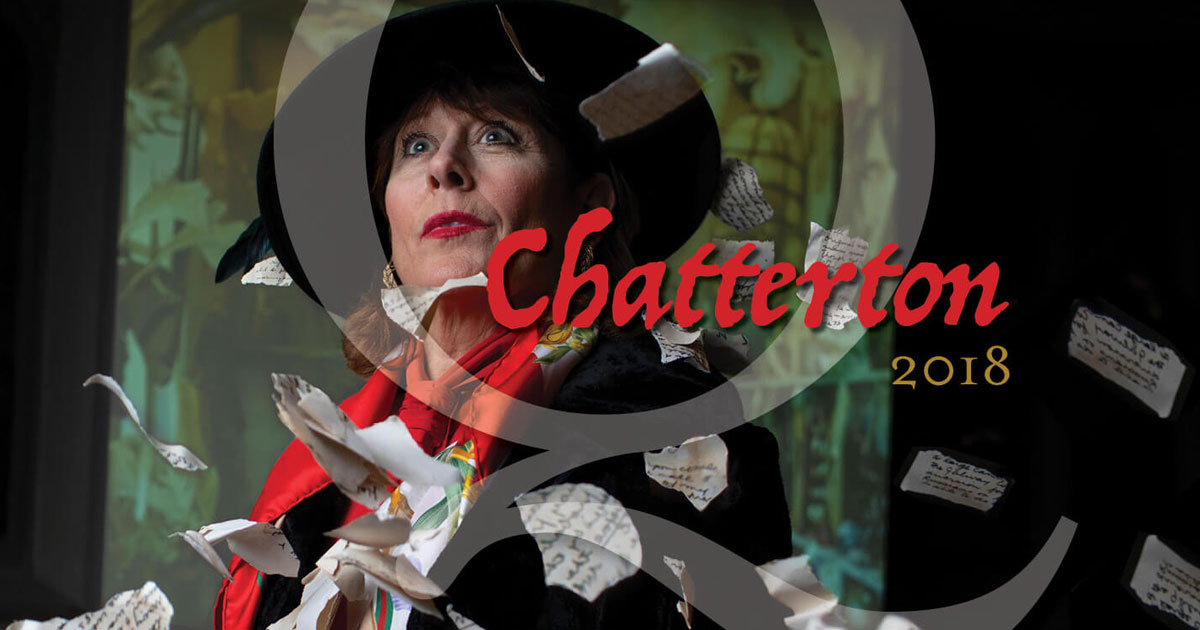
Dear Book Qlubbers,
Okay, all, we have a very exciting event on Monday where we can take this discussion face-to-face! Prof. Jim Kincaid, our Fearless Book Qlub Leader, asked me to share a few questions in advance of Monday evening, just so we could all be thinking about them.
- Why were Chatterton and his Rowley poems so important to Romantic poets?
- Can you defend Harriet Scrope? Imagine you were her best friend.
- According to the novel, is anything “real”? Are there nothing but copies?
- Why does Ackroyd make so many of his characters “unrealistic”?
- What goes wrong with the Meredith’s? Who is at fault?
- Can you make a case that little Edward is the one who sees most clearly?
- Are we all just playing parts in a story we did not author and cannot understand?
- Note rare passages that are not ironic at all but lyrical (e.g., pp. 165-66, 169).
- “The truest plagiarist is the truest poetry.” You agree?
We’ll spend some time on the issue of what is real since it’s so important to the novel. Here are some places to look more closely at in the novel:
- p.28—“But didn’t you know? Everything is made up.”
- p.35—“Who’s to say what is real and what is unreal.”
- p.39—“You told me that reality is the invention of unimaginative people.”
- p.40—“The real world is just a succession of interpretations. Everything that is written down immediately becomes a kind of fiction.”
- p.58—“Chatterton knew that original genius consists in forming new and happy combinations, rather than in searching after thoughts and ideas which had never occurred before.”
- p.87—“The truest Plagiarism is the truest Poetry.”
- p.91—“As Platonists tell us, an imitation in a world of imitations.”
- p.94—Chatterton was not only the greatest Plagiarist in history, but, therefore, the greatest Poet.
- p.100—The Anxiety of Influence
- p.123—“After all, everyone needed a story.”
- p.157—“The invention is always what is real. . . . The poet does not describe; he creates.”
- p.157—“There is nothing more real than words. They are reality.”
- p.183—“For weeks [Vivien] had been using phrases like ‘That’s kind of you’ or’ It’s very good of you,” but it was as if she was performing the role of a person. She no longer knew what she meant.”
- p.213—“We were all of us playing a part—-nothing was real.”




